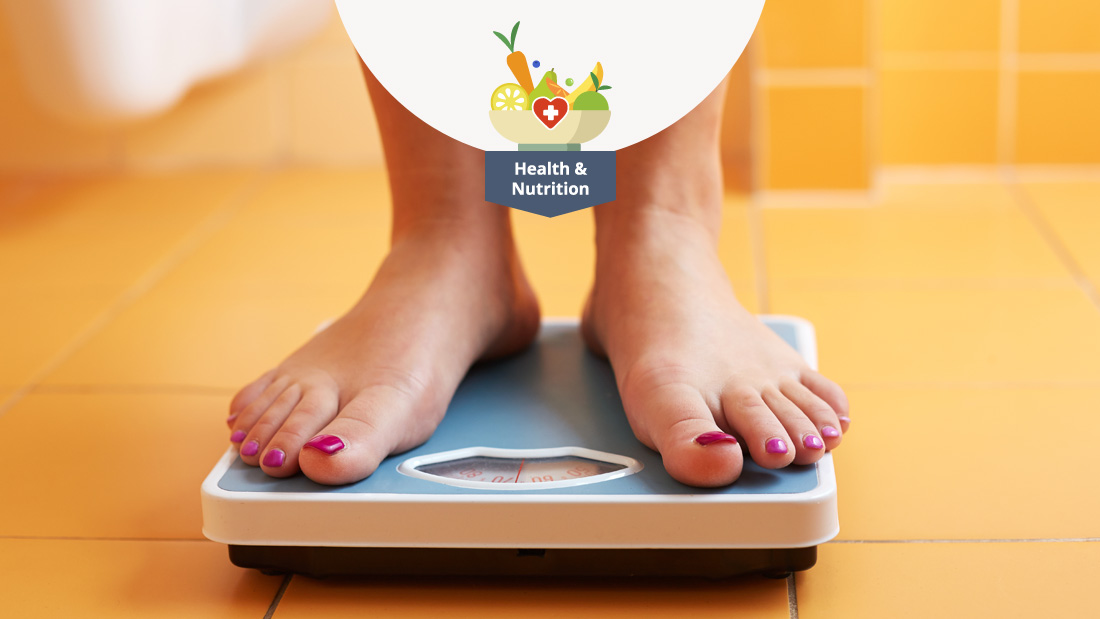
The right amount of pregnancy weight gain
It is completely normal to put on weight when expecting a baby; in fact, some level of weight gain in pregnancy is an inevitable and healthy part of the process. But how much weight gain is to be expected and when, if ever, should you be worried?
First, let’s consider the following facts:
- The average newborn baby weighs around 3.4kg (7.3lb)
- The placenta, weighs 0.8kg (1.5lb)
- The amniotic fluid surrounding your baby weights around 0.8kg (1.8lb)
As the above list demonstrates, on average, when you reach full-term you can expect to be at least 5kg (11lbs) heavier than you were pre-pregnancy and this does not even begin to account for the mass of other changes your body goes through during pregnancy.
So, let’s look in detail at some of these other changes your body will undergo during pregnancy, all of which cause weight gain:
- The muscle mass of your uterus increases, causing average weight gain of 0.9kg (2lb)
- Beginning in the first trimester, plasma volume increases, peaking at around 34-36 weeks 1.2kg (2.6lb)
- Increased water retention causes weight gain of around 1.2kg (2.6lb)
- Breast enlargement causes weight gain of around 0.4kg (0.9lb)
- Breast feeding fat stores cause gains of around 4kg (8.8lb)
So, altogether this second group of additional weight gains equates to a total of 6.7kg (15lbs), add this to the 5kg weight gain outlined in the earlier list and this equals a total average weight gain of 11.7kg (26lbs). This figure tallies with informal guidance from the NHS which states that mothers-to-be should expect to gain between 10kg and 12.5kg (22lb and 26lb) during pregnancy, with the majority of this weight gain occurring from week 20 of the pregnancy.
Different mothers, different BMIs
However, although the above information is useful in establishing a general picture of expected weight gain during pregnancy, it manifestly fails to account for the individual woman.
One way to establish what represents a healthy level of weight gain for you during pregnancy is to measure your body mass index (BMI) before or at the beginning of pregnancy.
BMI considers your weight in relation to your height so that you can see whether you are a healthy weight for your body type.
According to the Institute of Medicine (IOM), when accounting for BMI, women should consider the following levels of relative weight gain as healthy:
- BMI of less than 18.5 – these women are considered underweight and should gain between 12.7 and 18.1kg (28 to 40lbs)
- BMI of 18.5 to 24.9) – these women are considered normal weight and should gain between 11.3kg and 15.9 kg (25 and 35lbs)
- BMI of 25 to 29.9 – these women are considered overweight and should gain between 6.8 and 11.3kg (15 and 25lbs)
- BMI of more than 30 – these women are considered obese and should restrict weight gain to between 5 and 9kg (11 to 20lbs)
As can be seen, there is some discrepancy between the “normal” BMI range figures suggested by the IOM and those suggested by the NHS. This is in part due to the fact that women’s metabolism and gestational systems will differ based on things such as genes, environment and underlying health conditions, making concrete guidelines difficult to achieve. As such, although maintaining a healthy BMI should always be considered a priority the most important thing to consider is your overall health and diet.
Eating right during pregnancy
There is no substitute for a healthy and balanced diet that is rich in fresh fruit and vegetables, whole grains, nuts, pulses, full fat dairy and, for those who are not vegetarian, oily fish and lean unprocessed meat. Additionally, it is very important to steer clear of trans fats and refined sugars.
Most experts agree that pregnant women with a normal range BMI should consume their usual quota of calories until the second trimester when they should look to increase intake by around 300 calories per day. Once in the final trimester this should be increased to an additional 500 calories more than you were receiving pre-pregnancy. This is a far cry from the old wives’ advice of “eating for two”. The truth is that eating too much is bad for both you and your baby.
The risks associated with falling outside of the healthy range
Overweight pregnant women risk gestational diabetes, hypertension and complications during labour. Furthermore, children are at an increased risk of a range of health conditions, while it can be difficult (and depressing) trying to shift excess weight post-pregnancy.
Underweight pregnant women and their children face similar risks, including a much higher incidence of having an underweight and/or preterm child.
Make a habit of having a healthy, balanced and nutrient-rich diet to increase your already statistically excellent chances of having a smooth pregnancy and labour as well as a healthy child and postpartum outlook.










